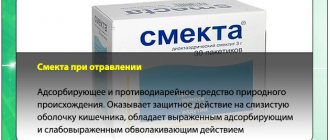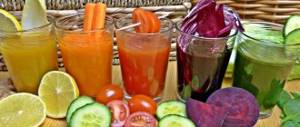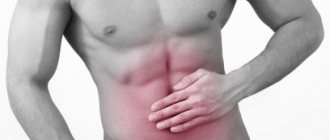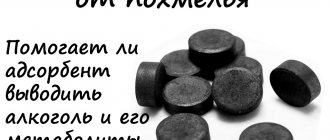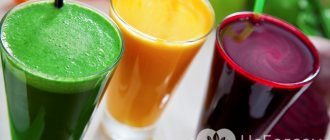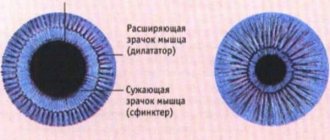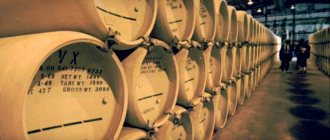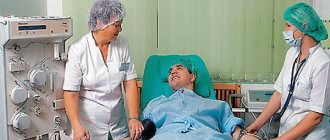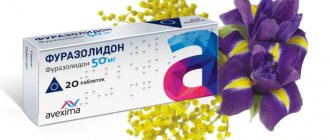The joy and fun of a festive feast is often overshadowed by the consequences of drinking alcohol, especially if you drank a lot. Special pills help cope with a hangover. They alleviate the signs of ethanol poisoning and improve metabolic processes in the body.
The effect of alcoholic beverages on the heart muscle: pharmacokinetics and pharmacodynamics of ethanol
Ethyl alcohol has a wide spectrum of action as a means for local and internal use. Local use also has a moderate effect on the heart muscle, but within the framework of the problem under consideration it is insignificant. In this regard, it is advisable to consider the pharmacological effect of ethanol when the substance is consumed orally.
Absorption of ethyl alcohol begins from the oral mucosa (up to 10%), then continues in the stomach (up to 30%) and ends in the small intestine (up to 75%). Absorption of drinks with an alcohol content of 9% to 20% occurs faster than the absorption of drinks with an ethyl alcohol concentration of 30% to 70%.
Attention!
Ingestion of alcohol orally with a concentration of over 70% is dangerous to health and even life, as it can cause burns of the mucous membranes of the oral cavity and esophagus, and internal organs.
It has a high degree of organotropy, that is, it tends to concentrate in certain areas and secretions of the human body. The highest concentration is observed in the brain, prostate secretions, heart, and testicles. The presence of ethanol in the blood plasma is noted within five minutes after oral administration of an alcoholic drink.
The effect on the heart muscle is associated both with the organotropy of ethyl alcohol, that is, the direct effect on the heart, and with the effect on the cardiovascular system through the central nervous system. The latter, as a rule, provokes the development of tachycardia and similar pathologies. As a rule, no more than 10% of ethanol is excreted through the kidneys, intestines and sweat glands without transformation; 90% of ethyl alcohol is oxidized to acetaldehyde, which is metabolized in the human liver.
Development of hypertension and tachycardia under the influence of alcohol
To understand the etiology of the development of tachycardia and hypertension, you need to know the stages of alcohol intoxication. Medical classifiers conventionally distinguish three main stages and hangover syndrome.
1. The first stage is marked by pronounced agitation against the background of moderate blood thinning and increased breathing due to the increased need for oxygen supply to the myocardium. The balance in relation to the processes of inhibition and excitation is disturbed, with a tendency for the former to weaken. At this stage, primary tachycardia is noted without an increase or with a moderate increase in blood pressure.
Important!
In this case, much of the journalistic literature, with an emphasis on articles about the dangers of alcohol and the benefits of a healthy lifestyle, makes a significant mistake: tachycardia is considered a pathological and even dangerous to health condition.
In fact, this type of tachycardia is an increase in heart rate, similar to the tachycardia that occurs after exercise, drinking a cup of strong coffee, fright, and in similar cases. This type of tachycardia is classified as physiological and is a natural reaction of the body to the release of certain substances into the blood. Palpitations go away on their own as you sober up and do not require treatment.
2. The second stage is marked by the opposite effect: a decrease in activity against the background of suppression of body functions and the onset of moderate oxygen starvation. At this stage, blood pressure drops sharply. Such a pressure drop is the main prerequisite for the development of hypertension, since changes in blood pressure contribute to the weakening of blood vessels and a decrease in their elasticity.
3. The third stage is characterized by toxic poisoning and occurs when taking high dosages of ethyl alcohol orally. It provokes disruption of all body systems and has a detrimental effect on the peripheral nervous system with the development of mental disorders.
The onset of a hangover does not depend on the initial stage of alcohol intoxication. However, in most cases, the amount of ethyl alcohol consumed is directly proportional to the severity of the subsequent hangover. It is at this stage of half-removal of alcohol from the body that the most severe type of tachycardia can occur - arrhythmia, which can be fatal.
Types of tachycardia that occur while taking ethyl alcohol
- Sinus tachycardia is a tachycardic arrhythmia of the pancreas type associated with dysfunction of the sinus node in the presence of internal pathologies or exposure to external forces. Sinus tachycardia is divided into: physiological tachycardia (see the description of the first stage of intoxication in the previous section) and pathological tachycardia provoked by hyperthyroidism, vascular or respiratory failure, anemic conditions, neurocirculatory dystonia, heart failure, myocardial infarction and so on. All these factors that provoke sinus tachycardia aggravate the course of tachycardia due to alcohol intake.
- Paroxysmal tachycardia is a tachycardia of the atrial, nodal or ventricular type, occurring against the background of a significant increase in the activity of the sympathetic nervous system or the presence of myocardial pathologies.
Read also: The best hepatoprotectors for hepatitis
Symptoms of tachycardia
Increased heart rate: with sinus tachycardia: from 100 to 170 contractions of the heart muscle per minute; with paroxysmal tachycardia: from 150 to 300 contractions of the heart muscle per minute.
Important!
Tachycardia itself is not a disease, but is a symptom that manifests itself in connection with the physiological characteristics of the body or caused by the presence of another disease of the cardiovascular, respiratory, nervous or endocrine systems of the body.
Strong heart palpitations after drinking alcohol, what should I do?
A rapid heartbeat after drinking alcohol can only be considered a contraction of the heart muscle at a speed of at least 100 beats per minute. The lower frequency of contractions of the heart muscle is within normal limits and does not require any action - just lie down and normalize your breathing. If the heart beats at a rate of more than 100 beats per minute, measures must be taken to reduce the pulse rate.
Let's consider the question: tachycardia after alcohol - what to do?
- Go outside or allow air from outside to enter the room.
- Get to your feet and walk a little at a moderate speed, and then lie down, ensuring that your body is positioned so that your feet are higher than your head.
- Wash with cold water several times.
- Hold your breath for 10 – 15 seconds. Repeat the exercise for 10 minutes every minute.
Medication relief of tachycardia from a hangover
The simplest and safest method available for independent use is “Potassium Chloride” diluted in 100 ml of water, and an hour later “Magnesia” diluted in 100 ml of water.
- Oral administration of beta-blockers. The drug of choice is Metoprolol.
- Taking vasodilator drugs: Cinnarizine and so on.
- Diuretic drugs with a mild effect of lowering blood pressure: Furasemide or Indapamide.
If the pulse rate exceeds 150 beats per minute, you need to take Corvalol or Diphenhydramine.
Folk remedies for the treatment of tachycardia
The use of mild sedatives is preferably of plant origin: valerian or motherwort (in the form of tablets or decoction). It is recommended to use three times a day for one week. It is also useful to periodically drink mint and/or lemon balm tea.
Prohibited actions for arrhythmia after alcohol
- Consumption of drinks and foods that increase blood pressure: coffee, energy drinks, fatty and smoked foods, high in salt and hot pepper.
- Excessive physical activity.
- Visiting a steam room or taking a hot bath.
- It is not allowed to continue drinking alcohol during tachycardia.
Painkillers
The most common occurrence after drinking alcohol is headache and body pain, as well as depression. Non-steroidal analgesics will help cope with these symptoms. Experts say that in this case, effervescent tablets (for example, Aspirin, Upsarin) work well. When dissolved in water, they form carbon dioxide. It increases the body’s acceptance of the beneficial properties of the drug, which is important.
This category also includes combination drugs:
- Alka-Seltzer preparation. These hangover pills have been produced since 1930 and are sold all over the world. Their composition is very simple - it is aspirin, baking soda and citric acid. Aspirin eliminates pain, thins the blood, soda levels the acid-base balance, and citric acid provides carbonation, which increases bioavailability. According to the recommendations of doctors, it is better to take this remedy immediately after a feast. To avoid side effects, the drug should be taken for no more than three days with a maximum consumption of 9 pieces per day. According to consumer reviews, this drug quickly relieves all hangover syndromes and also eliminates headaches.
- Alka-Prim products. The drug contains aspirin, baking soda and glycine. Glycine helps break down acetaldehyde into gas and water and stimulates the nervous system. Reviews about this product are predominantly positive. It quickly eliminates headaches and other pains that occur after drinking large amounts of alcohol.
Preventive measures to prevent tachycardia due to alcohol consumption
- Minimizing alcohol consumption. And a complete exclusion of alcohol consumption on an empty stomach.
- Minimizing the use of tobacco products when drinking alcoholic beverages.
- Avoid drinking alcohol if you have high blood pressure or after intense physical activity.
In case of frequent manifestations of tachycardia after/during drinking alcohol, it is recommended to consult a doctor and stop drinking alcohol.
If you suspect that a heart attack has begun and your heart hurts from a hangover, then:
- Place the victim in a semi-lying position.
- Place the patient's left hand behind the back of his head in a smooth motion and ask him to reach his right shoulder. This pose often relieves chest pain.
- If the pain in the heart does not go away after drinking alcohol, and it is also difficult to inhale air, there is a blue face, shortness of breath, then turn your head to the right in case foamy discharge appears from the mouth due to heart failure, so that the person does not choke. Call Emergency Medical Services.
- When you have a hangover your heart beats fast. Take your pulse. To do this, count the number of beats in 10 seconds and multiply by 6. If the pulse is 90 beats per minute or higher, and several hours have passed since the last drink (preferably 6), then put half of an Anaprilin 40 mg tablet or a 20 mg tablet under your tongue. There is no Anaprilin, then drop Corvalol or Valocordin 20 drops into a small amount of water and give the victim a drink. These medications begin to work within 10-15 minutes. Attention! If the pulse rate is 140 beats per minute or higher, call an ambulance immediately. With 160 strikes there is a high probability of death.
- If the condition is not critical, but just a slight pain in the heart area, then you can take medications with minerals: potassium, magnesium (Asparkam), calcium. Sodium reserves can be easily replenished with brine or hydrocarbonate mineral water (Borjomi, for example).
A hangover can cause various ailments, and they are all unpleasant in their own way. But one of them, when your heart hurts after drinking alcohol, can seriously scare you. A heart that never malfunctions and alcohol, which is constantly present in a person’s life, are incompatible concepts. And the acceleration of the heart rate, or its disturbances, is quite expected after entering the body of the narcotic substance methylcarbinol C2H5OH, which directly affects the cardiovascular system.
Summing up
Heart pain during a hangover occurs quite often. In some cases, they are only symptoms of alcohol intoxication, and sometimes they can indicate the occurrence and development of severe heart diseases: atrial fibrillation, heart attack, heart failure. This is especially true for patients who have been in a state of heavy drinking for a long time.
Therefore, it is necessary to distinguish and understand why heart pain is caused in order to have time to call an ambulance in especially severe cases. If this condition is only a symptom of a hangover, then the patient can be brought out of it with the help of folk remedies or medications. In case of a severe hangover, a narcologist should help you stop drinking. Self-medication in such cases can lead to the exact opposite result.
How to understand that it is the heart that hurts?
You can recognize a case when your heart actually hurts after drinking alcohol by the following symptoms that accompany the pain (and sometimes occur painlessly):
- Feeling of chest tightness
- It’s hard to breathe after drinking alcohol (especially when inhaling), shortness of breath, feeling like there’s not enough air.
- Arrhythmia. The heart rhythm becomes erratic, it becomes uneven: it beats wildly, then suddenly freezes and seems to stop completely.
- Blueness of the face, which is caused by a violation of the outflow of blood from the head
- Dizziness and loss of orientation in space, up to loss of consciousness.
- Reasonless but panicky fear of death. It is only conditionally unreasonable, since the body tries to send signals to the brain with the help of hormones that you are still in danger. Although a person may not have any visible reasons for realizing this.
- Increase or decrease in blood pressure, in severe cases – hypertensive crisis.
Ignoring all these signs of cardiac disorders is very dangerous. If there are true disruptions in the rhythms and contractions of the heart muscle, the nutrition of the brain and other organs and tissues is disrupted. The risk of strokes increases significantly. And the reluctance to call an ambulance because you are embarrassed to say: “My heart hurts from a hangover, what should I do?” - a very big stupidity that can lead to sad consequences.
If you can clearly explain the reason for the call, then most likely a team equipped with a portable ECG machine will come to you. This will allow you to quickly determine the cause of your poor health, and will also give doctors a full understanding of whether you should be taken to a hospital for further treatment, or whether you can get help at home.
But if you have tachycardia after alcohol, not accompanied by severe pain, and are not burdened by any other symptoms of heart problems, then this is an expected reaction of the body.
Among all the possible symptoms of a hangover, sometimes you can confuse pain in the heart after alcohol with signals from other organs that they are having a hard time. Alcohol affects the entire body without exception, since it easily penetrates cells and spreads throughout the tissues.
Read also: Website http premiumtabak ru
Also, against the background of alcohol intoxication, exacerbation of chronic diseases often occurs. Pain caused by problems with:
- Pancreas.
- Stomach or esophagus. Exacerbations of gastritis or peptic ulcer disease are quite capable of causing sharp subcostal pain, which can be confused with heart pain. It also happens that gastric juice leaves the stomach and enters the esophagus, which usually causes heartburn attacks. But there is a place where the distance between the wall of the esophagus and the heart is calculated in millimeters. If the acid gets close to this place, then people identify the pain caused by irritation of the esophagus exclusively as: “my heart hurts from a hangover.”
- Diaphragmatic hernia. An exacerbation of the inflammatory process from alcohol in this case is very similar to a heart attack. Since pain in the chest area is accompanied by difficulty breathing and even stopping due to a disruption in the rhythm of contraction of the diaphragm.
- Liver. Such pain usually appears in experienced alcoholics whose liver is already seriously damaged.
- Thoracic osteochondrosis. In people with this diagnosis, periodic pain in the chest and between the ribs when moving the body when drinking alcohol is significantly reduced. But swelling and exacerbation of inflammation the next morning after a drunken party lead to difficulty breathing after drinking alcohol.
- Neuroses. These psychogenic disorders are reversible and can be successfully treated by psychologists. Therefore, if you often experience a strong heartbeat after drinking alcohol, if your heart hurts after drinking, changes in blood pressure, anxiety, irritability or tearfulness, it is better to contact not only a cardiologist and neurologist, but also a psychologist.
Emergency medical intervention
A person will certainly need it after the holiday if he has:
- severe shortness of breath,
- exacerbation of any old diseases,
- panic attack,
- unreasonable fear of dying,
- lack of clarity of perception,
- sharp pain.
Such symptoms usually accompany acute heart disease. Dizziness and apnea (stopping breathing) may occur. Only a doctor can accurately determine the cause of the problem and find out why is observed . And only the doctor must prescribe medications and select the necessary therapy for each individual case.
Possible reasons why your heart hurts after a hangover
Alcohol affects the heart, this is an undeniable fact, but what exactly does it do to the cardiovascular system?
- Exacerbation of chronic diseases. If there is insufficiency of the coronary arteries or heart disease, then drinking alcohol will increase the manifestation of these diseases, and may even aggravate them (if drinking is constantly present in life)
- The effect of ethanol on vascular tone. Basically, this effect leads to an increase or decrease in blood pressure.
- Lack of microelements and vitamins necessary for the proper functioning of the heart and blood vessels. The main ones are magnesium, potassium, calcium, B vitamins. They are all actively removed from the body in the process of getting rid of the toxic breakdown products of ethyl alcohol - acetaldehydes.
When your heart hurts after drinking, this is not always the same disorder. Ailments may occur, varying in their symptoms and danger. For example:
- Heart failure. It is expressed in wear and tear of the heart muscle and a deterioration in its contractility. Long-term binge alcoholism leads to such consequences. This greatly increases the risk of pulmonary edema. Symptoms of an attack:
- Foamy discharge from the mouth, mostly pink
- Pronounced blueness of the face
- Severe shortness of breath
- Cold sweat
- A change in vascular tone, which is accompanied by an increase in blood pressure, you can learn more about this in a separate article.
- Arrhythmia. Violation of the rhythm of contractions of the heart muscle.
- Tachycardia. An acceleration of the heart rate from 90 to 160 per minute, more than 160 beats, is followed by paroxysmal ventricular tachycardia, severe forms of which end in ventricular fibrillation and death.
- Bradycardia. Heart beats per minute are less than 60. Possible if the hangover is accompanied by hypothermia (a decrease in body temperature below 35 degrees)
What not to do
If your heart hurts, doctors categorically prohibit using the following common methods of dealing with a hangover:
- Go to the bathhouse or sauna.
- Do intense workouts.
- Take an ice or contrast shower.
Ice water, including mixed with hot water, helps to invigorate and tone the body. However, if you have a heart condition, treating hangover syndrome in this way is contraindicated. Otherwise, a person risks developing a spasm of coronary vessels.
My heart hurts after drinking alcohol, what should I do? How to reduce heart rate
Any sane person who is concerned about his health will be alarmed by the appearance of chest pain or rapid heartbeat after drinking alcohol. Naturally, the main question in such a situation will be “how to calm the heart from a hangover?”
If your heart rate is less than 90, you don’t have to worry, it’s within normal limits. If you are bothered by mild tightness or tingling in the chest, causing more discomfort than pain, you can try to eliminate the painful condition yourself:
- You need to start with a set of measures for general detoxification of the body. All possible measures to get rid of alcohol poisoning and its consequences are described in detail in a separate article.
- It is necessary to replenish the reserves of magnesium, potassium and vitamins in the body, which are greatly depleted subsequently by alcohol abuse. In a hospital, this happens through a dropper, with a special solution containing all the necessary elements and glucose. At home, an analogue of this procedure can be the ingestion of one ampoule of potassium chloride and magnesium. Drink one of the drugs, diluting it with water (about 100 ml), and an hour later the second, in the same way. Between taking these medications, you can drink fructose dissolved in warm water or a teaspoon of honey.
- Mild sedatives (usually herbal preparations: valerian, Novo-Passit, etc.). But they will help only in cases where it is necessary to relieve weak tachycardia.
Adsorbents
A group of these drugs removes ethanol breakdown products and other harmful substances from the body by adsorption. They act only on the gastrointestinal tract. You need to take such tablets within 24 hours after poisoning, and after 1-2 hours you need to have a bowel movement through an enema. The last condition is mandatory. Otherwise, toxicants will be absorbed back into the blood through the intestines.
The most popular hangover pills in this group are activated carbon. This black medicine is sold in packs of 10 at an inexpensive price. In order to prevent a hangover, you need to take the drug at the rate of 1 tablet per 10 kilograms of weight. You should drink plenty of water. If a hangover has already set in, then drink the remedy in the morning. Be sure to empty your bowels.
Recently a new product has appeared on the market - white coal. Its active ingredient is silicon dioxide. To achieve the effect, just dissolve one tablet in water and drink.
More effective drugs are Enterosgel, Lignin, Smecta. The use of adsorbents is quite safe. In this case, there are almost never any side effects, even with an overdose.
What not to do to help your heart with a hangover
- It is strictly forbidden to combine with alcohol or use without a doctor’s prescription such medications as Anaprilin, Phenazepam, Valocordin, Carvalol and their analogues, if less than 6 hours have passed since the last portion of alcohol was consumed.
- Hangover with alcohol
- Drink strong coffee or tea
- Visit a sauna or bathhouse
- Take a contrast shower or hot bath
- Play sports or run. And any physical activity is contraindicated.
Heart attack is a common cause of death while intoxicated. If your heart is beating strongly due to a hangover, it’s hard to breathe, and you feel pain in the chest, you should think about visiting a cardiologist. Only a specialist can, through a series of studies, determine the exact cause of heart pain and prescribe the correct treatment.
Rapid heartbeat is a dangerous symptom that indicates a malfunction of the heart muscle. The development of the pathological process is influenced by several factors. Tachycardia with a hangover can occur due to alcohol abuse. What needs to be done to normalize a person’s condition and how to prevent the development of pathology?
Will the effect of hangover pills increase if you drink them with vodka?
Some people take this joke seriously, so it’s still worth explaining the effect of alcohol on the body. Although it helps enhance the effect of drugs, as a rule, these are side effects. As a result of the interaction of the hangover pill and vodka, a skin rash, stomach pain, itching in the mouth and other unpleasant sensations may appear. Therefore, it is best not to take risks and immediately drink the medicine with clean water in order to quickly return to a normal state and not earn yourself new health problems.
Remember, self-medication is dangerous; consult a doctor for advice on the use of any medications.
Effect of alcohol on the heart
Basically, alcoholic arrhythmia occurs during prolonged binge drinking and alcohol abuse. If you already have heart problems, the likelihood of tachycardia occurring in the morning is much higher.
Once ingested, the ethyl alcohol contained in booze negatively affects the state of the cardiovascular system. During consumption, alcohol dilates blood vessels. After a few hours, they sharply narrow.
Read also: Alcohol poisoning first aid at home
Drinking speeds up your heart rate. With regular and excessive consumption of alcohol-containing drinks, the walls of blood vessels are destroyed, and red blood cells die. As a result of systematic binge drinking, blood thickening occurs, metabolism slows down and hemodynamics are disrupted.
Damage to blood vessels often results in hemorrhages, the scale of which depends on the condition of the heart muscle and the amount of alcohol consumed. Ethyl alcohol sometimes causes cardiac hypoxia, which can lead to heart failure.
Causes of increased heart rate with a hangover
Arrhythmia with a hangover occurs after vasospasm caused by ethanol. The heart muscle needs to contract more often to pump out the required amount of blood.
In a healthy person, the pulsation at rest is no more than 90 beats per minute. The indicators of an alcoholic may be 10-20 units higher. In this case, the human heart muscle wears out faster.
A rapid heartbeat from a hangover can also provoke arterial hypertension (increased blood pressure more than 140/90 mm Hg). This effect is associated with an increase in the release of blood, as a result of which the pressure on the walls of the arteries increases. Both phenomena are usually interrelated.
The development of tachycardia can be accelerated by:
- overweight;
- smoking;
- exposure to certain medications;
- caffeine abuse;
- hormonal surges;
- VSD (vegetative-vascular dystonia);
- weakened immunity.
Possible complications
If there are disturbances in the functioning of the heart muscle, refusal of treatment can provoke the development of more serious pathologies. Therefore, timely prescribed therapy will avoid dangerous complications.
Having discovered symptoms of arrhythmia, a person should contact a cardiologist who can determine the patient’s condition and, if necessary, prescribe medication.
Tachycardia
Irregular heart rhythm negatively affects the entire body. Tachycardia interferes with the normal flow of oxygen and various nutrients to the organs. As a result, oxygen starvation may occur, and the heart wears out faster.
Tachycardia can contribute to the development of:
- heart failure;
- ischemic stroke;
- pulmonary edema;
- acute myocardial infarction;
- and disrupt blood circulation in the brain.
In extremely severe cases, the pathological process causes cardiac arrest and death.
Arrhythmia
With any arrhythmia, complications are likely in the form of fibrillation (discrete contraction of the muscle fibers of the heart) and flutter of the cardiac ventricles. These manifestations can lead to death for the patient.
In the first seconds a person is faced with:
- dizziness;
- severe weakness;
- involuntary urination;
- loss of consciousness;
- convulsions.
Further, blood pressure and pulsation cannot be determined. The patient stops breathing and the pupils dilate. Clinical death occurs.
Rehydrants
A clear sign of a hangover is dehydration. Alcohol has a pronounced diuretic effect. Along with water, sodium and potassium salts leave the body. As a result, the water-salt balance of the body is disrupted, and improper distribution of fluid occurs. Many organs suffer from a lack of water and minerals.
To combat this effect, rehydrants are used. They normalize the water-salt balance of the body. The drug "Regidron" belongs to this category. It contains sodium and potassium salts, as well as glucose anhydride, which perfectly replenish the body's losses.
According to reviews, the mentioned drug protects the body well from dehydration and restores water-salt balance.
Help with palpitations
If arrhythmia during a hangover manifests itself acutely, you must seek emergency medical help.
Before doctors arrive, a person needs:
- free the upper chest and neck from clothing;
- take a horizontal position;
- Place your legs on the pillow so that they are higher than your body.
What else can you do if your heart is beating fast with a hangover? Holding your breath will help normalize your heart rate. You need to take a deep breath and not breathe for 10 seconds.
Some people recommend putting your face in cold water for 15-20 seconds. Light pressure on the eyelids for 20 seconds can alleviate the patient's condition. Each element must be performed 3-4 times.
Medication
Tachycardia is a fairly common symptom of hangover, especially among people who regularly drink alcohol. It manifests itself due to the production of large amounts of adrenaline and changes in electrolyte balance.
In case of heart rhythm disturbances, a cardiologist may prescribe:
- Beta blockers. The drugs reduce pulsation and pressure;
- ACE inhibitors. They also slow your heart rate and lower your blood pressure. Medicines prevent vasoconstriction.
- Calcium antagonists. They favor the expansion of coronary arteries and normalize myocardial nutrition.
- Sedative medications. They have a calming effect on the nervous system and also eliminate feelings of fear and anxiety. This category of drugs is suitable for complications of VSD during heavy drinking.
- Hepatotropic medications. Used as an auxiliary element to normalize the state of the digestive system. They are distinguished by wound-healing, antioxidant and anti-ischemic properties.
- Diuretic medications. They help remove excess fluid, facilitating the functioning of the cardiovascular system.
- Combined formulations.
Combining antibiotics with alcohol is strictly prohibited. This combination can provoke many negative reactions and reduce the effectiveness of drug therapy.
Folk recipes
What to do in case of arrhythmia with a hangover at home? Traditional medicine offers effective, time-tested recipes. Unlike medications, herbal-based medications have a milder effect and almost do not cause negative reactions. These remedies gradually normalize the condition of the nervous system and heart.
There are several popular recipes that will help cope with heart rhythm disturbances:
- 50 g of motherwort should be poured into 0.5 liters of boiled water and covered with a napkin for 2 hours. After the medicine has infused, it must be strained and drunk 3 times a day, 50 ml. Eating motherwort will help normalize pulsation, calm the nervous system and improve sleep quality.
- 30 g of a mixture of hawthorn, valerian, linden, arnica and motherwort should be poured with one glass of boiling water. The liquid is infused for 2 hours and consumed twice a day, 50 ml. The composition normalizes the functioning of the heart muscle.
You can also use mint and lemon balm tea to relieve tension. Its use will normalize pulsation. The remedy will also be useful for anemia (anemia). It is recommended to drink tea twice a day, 1 cup.
Before starting therapy with folk remedies, it is advisable to consult a cardiologist. If adverse reactions occur during treatment, you should stop taking the medication and be sure to consult a doctor.
Hepatoprotectors - “protectors” of the liver
Alcohol has a very strong effect on the liver. This is where 90% of ethanol is processed. Therefore, when choosing which hangover pill to take, be sure to use products that help your liver.
- The most popular hepatoprotectors in Russia are essential phospholipids. It has been experimentally proven that these hangover pills are highly effective in protecting the liver. Some of the most famous drugs are “Essliver Forte” and “Essentiale Forte”. Phospholipids not only protect new liver cells from the effects of ethanol, but also help restore those already destroyed. According to doctors, all biochemical parameters have improved in patients taking the drug. In addition, these drugs can be taken by people with fatty liver and hepatitis.
- The next group of hepatoprotectors is based on medicinal plants. Separately, there are anti-hangover pills based on milk thistle. It contains a unique substance – silymarin, which is a strong antioxidant. People who regularly drink alcohol are recommended to use this drug in courses several times a year. Well-known products based on milk thistle are the drugs “Gepabene”, “Geparsil”, “Silimar”. In general, the group of plants with hepaprotective properties is quite large. Thus, “Hofitol” was created based on field artichoke, “Solaren” was created based on curcuma longa, and “Holiver” contains both of these plants. Reviews from hepaprotectors are only positive. Consumers note that their liver is less affected by alcohol consumption.
- Organic preparations are special hangover pills created from animal livers. Reviews from doctors about them are different, since there is a possibility of allergies to animal components. It is highly not recommended for people suffering from hepatitis. Well-known products in this category are “Gepadif”, “Sirepar”.
- Medicines of various groups. Such products are not created as hepatoprotectors, but still have a beneficial effect on the liver (for example, Ademetionine). This drug is very effective in detoxification, but may cause allergies.
Prevention and contraindications
With tachycardia, it is dangerous to take drinks that excite the nervous system. During this period, physical activity is contraindicated. If you have arrhythmia, you should avoid visiting the sauna and bathhouse, as well as drinking coffee or energy drinks.
In order to prevent an increase in heart rate after drinking, experts advise drinking strong drinks in a calm environment. If you are in an agitated or exhausted state, you should avoid alcohol or minimize its dosage. This will reduce the load on the heart muscle.
The following recommendations will help you avoid unpleasant consequences:
- You should drink alcohol after meals - this will minimize the harmful effects of ethanol not only on the heart muscle, but also on all body systems.
- You should drink little by little to minimize the stress on your heart.
- Persons with hypertension are recommended to take no more than 40 ml of pure ethyl alcohol.
Can a person drink alcohol with tachycardia? Alcohol can cause the development of heart pathology even in an absolutely healthy person. Any ailment of the cardiovascular system is a serious reason to give up drinking.


